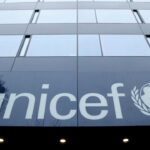 Vaccines are the most powerful and effective tool for preventing childhood diseases as well as reducing child mortality.
Vaccines are the most powerful and effective tool for preventing childhood diseases as well as reducing child mortality.
To combat vaccine-preventable childhood killer diseases, the World Health Organization (WHO) recommends Routine immunization (RI) for all children and appropriate vaccination through the life course.
According to the United Nations Children Fund (UNICEF), vaccines save the lives of more than 4.4 million children every year.
However, about 2.2 million children in Nigeria do not receive any single immunization every year ”
Available data on routine immunization in Nigeria show a disparity in coverage between Northern and Southern Nigeria, with the former performing worse.
In a bid to strengthen routine immunisation coverage and reduce under-five mortality in some states in the northern part of the country, the Solina Centre for International Development and Research (SCIDaR) through the Northern Nigeria States Routine Immunization Strengthening Project (NNRISP) has supported Six (6) northern State Primary Healthcare Boards to improve health outcomes in their states in the past Seven years.
Funded by the Bill and Melinda Gates Foundation (BMGF) the NNRISP has played a pivotal role in enhancing routine immunization and primary healthcare services across the states of Bauchi, Borno, Kaduna, Kano, Sokoto, and Yobe.
At the closeout and dissemination event of the Northern Nigeria States Routine Immunisation Strengthening Project (NNRISP) yesterday in Abuja, reoresentatives of the six benefitted states noted that the project has made visible impact in increasing immunization coverage, improving vaccination supply chains, strengthening coordination and political will, guaranteeing availability of government funds for immunization, enhancing health managers’ capacity, and engaging communities to promote immunization awareness and demand.
Executive Chairman of the Bauchi State Primary Health Care Development Agency, Dr. Rilwan Mohammed stated that the agency through the NNRISP project, received technical support and trainings on routine immunisation, research and support for its annual operation plan.
He said, “We were crying when we heard they are closing out because this intervention started in 2013 and is closing out in 2022. What we received from these people are real technical support and trainings, particularly on routine immunization, research and support for our annual operation plan.”This is very important because it is from there that we check our budget and see whether we are achieving what we set to achieve” .
“If we look at the impact of the SCI in the area of routine immunization, we were really down; it was only 5 per cent in 2012, now, we are 33 per cent in coverage. It was the result of collaboration between SCI, partners and our government. Also, our coverage for family planning was as low as 25 per cent in acceptance, now it is about 65 per cent in Bauchi. If we look at the impact of the SCIDaR in routine immunisation, we were really down; it was only five per cent in 2012, now, we are 33 per cent in coverage. It was the result of collaboration between SCIDaR, partners and our government.”
On his part, Former ED, SPHCDA, Borno, state, Dr Lawi Auta Mshelia, observed that amid insurgency, Borno state government would not have been able to achieve all it has done in strengthening the PHCs as well as scaling up immunisation without the support of the NNRISP project implemented by @SCIDaR in the state.
Emir Of Dass. HRH, Alhaji Usman Bilyaminu said, “We are seeing a lot of progress in immunisation in Nigeria, and I know we can do more. We must continue to work together to ensure that our children have access to immunisation to help them become productive citizens in the future.”
Also speaking, Consultant supporting the work for BMGF in Yobe State, Dr. Musa Matazu, McKing explained that the MoU was informed by the poor health indices, weak health system and the lack of accountability in the health system in the implementing states.
He noted that through the intervention, the indices have improved, with increase in immunization coverage from 9 per cent in 2013 to 51 per cent in the last survey that was conducted for Yobe State improved the management capacity of the implementing staff in terms of capacity independence.
He said, “Now, there is a kind of assured funding for critical health activities, which, hitherto were not available; even if available, they were not accounted for. Even if accounted for, there were a lot of pilferages and misdirection of the fund to where they are not even important. It has also improved the management capacity of the implementing staff in terms of capacity independence”
“When you look at the availability of vaccines, we used to have over 60 per cent of stockout of vaccines before the MoU, but currently in Yobe, we have been under five per cent in the past four years.”
On his part, Director of Advocacy and Communications of National Primary Health Care Development Agency (NPHCDA), Mohammed Abubakar, observed that collaboration and partnerships of stakeholders is highly needed to improve the nation’s poor health indices. “That way, we would get to our destination – getting healthcare to the ordinary person, that is Universal Health Coverage (UHC) we seek to attain.’












